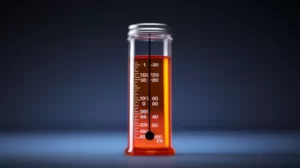Taking just 25 seconds out of your day to practice a simple health habit could provide you with round-the-clock health protection. That habit is washing your hands. According to the Centers for Disease Control and Prevention (CDC), regular handwashing not only decreases the likelihood of life-threatening diarrhea by up to 50 percent but could also prevent over a million deaths every year across the globe if practiced enough. On top of that, this habit could put a stop to food poisoning in most cases and lower your risk of catching a cold or flu by 16 percent. With these impressive stats in mind, let’s explore this vital health habit further.
The Importance of Handwashing
One might think that with all the new sanitizing products on the market today, the good old-fashioned soap-and-water handwashing method is becoming obsolete. However, this is far from the truth, as washing your hands with soap and water is still the most effective way to eliminate germs. But many people overlook its importance.
The hands are one of the primary vehicles for spreading infections. This is because they come into contact with countless surfaces every day. These surfaces can range from doorknobs to keyboards, and each has its share of germs. When the hands are not properly washed, the germs picked up from these surfaces can enter the body through the eyes, nose, and mouth, leading to illness.
Education is the Key
Educating people about handwashing is crucial in the global fight against infectious diseases. According to the World Health Organization (WHO), handwashing promotion programs can decrease the risk of catching a respiratory infection by at least 16 percent. In fact, it has been observed that when students have access to handwashing facilities in their classrooms, absenteeism due to illness reduces by around 20 percent.
Just how important is handwashing when it comes to food safety? The CDC estimated that over 50 percent of all foodborne illness outbreaks in the US are associated with poor hand hygiene. So, ensuring that hands are cleaned before preparing and consuming food should be made a priority. And, of course, proper handwashing is also paramount in healthcare facilities to protect patients from infections.
When to Wash Your Hands
As mentioned, the hands come into contact with a variety of surfaces throughout the day. Therefore, it is essential to wash them often. Some of the key instances when one should wash their hands include:
- Before, during, and after preparing food
- Before eating
- Before and after caring for someone who is ill or attending to a wound
- After using the toilet or changing a diaper
- After blowing your nose, coughing, or sneezing
- After touching animals, animal feed, or animal waste
- After handling pet food or treats
- After touching garbage
The Proper Way to Wash Your Hands
To get the most out of handwashing, it’s essential to do it the right way. Here’s a step-by-step guide on how to wash your hands effectively:
- Wet your hands with clean, running water (warm or cold) and apply soap.
- Lather your hands by rubbing them together, making sure to cover the backs, between your fingers, and under your nails.
- Scrub your hands for at least 20 seconds. If you don’t have a timer, hum the “Happy Birthday” song from beginning to end twice.
- Rinse your hands well under clean, running water.
- Dry your hands using a clean towel or air dry them.
Contrary to popular belief, using antibacterial soap is not more effective than regular soap. In fact, some studies have shown that long-term use of antibacterial soap may contribute to antibiotic resistance. Moreover, using hand sanitizers should not replace handwashing, but rather act as a supplement when soap and water are not available.
In Conclusion
Handwashing is a simple but powerful habit, one that can significantly impact your health and the health of those around you. By making a conscious effort to wash your hands regularly and correctly, you can reduce the spread of germs, lower your risk for illness and potentially save a life. So, don’t forget to wash your hands, because the future of your health is in your hands.



